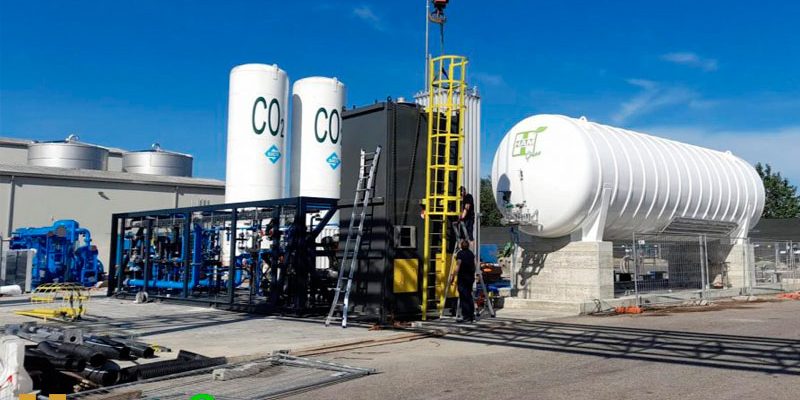HAM Group and CycleØ have been awarded the contract for the construction and operation of the first bio-LNG plant in Chile, which will be located in the Ñuble region, with a capacity to process between 7,500 and 16,500 m3 of biogas per day. This will allow to reduce more than 19,000 tons of CO2 per year, 96% of fine particle emissions and 85% of nitrogen oxide and sulfur emissions in the heavy transport sector, compared to other fuels.
The bio-LNG plant will be possible thanks to the commitment of Lipigas, a relevant player in the Latin American energy market, to an efficient and 100% renewable energy solution. The biogas comes from an anaerobic co-digestion plant for waste from a MaxAgro pig farm, where HAM Chile Spa will build and manage the processing facilities. This site will feature upgrading equipment, developed by FNX Liquid Natural Gas, which will purify the biogas that contains 50-60% methane, increasing its quality and obtaining a methane purity of over 99%.
HAM and CycleØ believe that bio-LNG must play a prominent role in the energy transition, reducing greenhouse gas emissions, thanks to its negative carbon footprint. In addition, the commitment to this fuel favors the circular economy, generating employment in rural areas, returning resources and nutrients to the soil, and as a sustainable alternative to incineration or landfills.
This project also reinforces HAM’s commitment to biogas, which has led the company to develop several projects related to bio-LNG and bio-CNG, such as those in Girona (Spain), where HAM opened the first 100% biomethane for vehicles plant in the country, or the one in Faenza (Italy), where they will put into service one of the largest bio-LNG plants in Europe.
Source: HAM








1 Comment